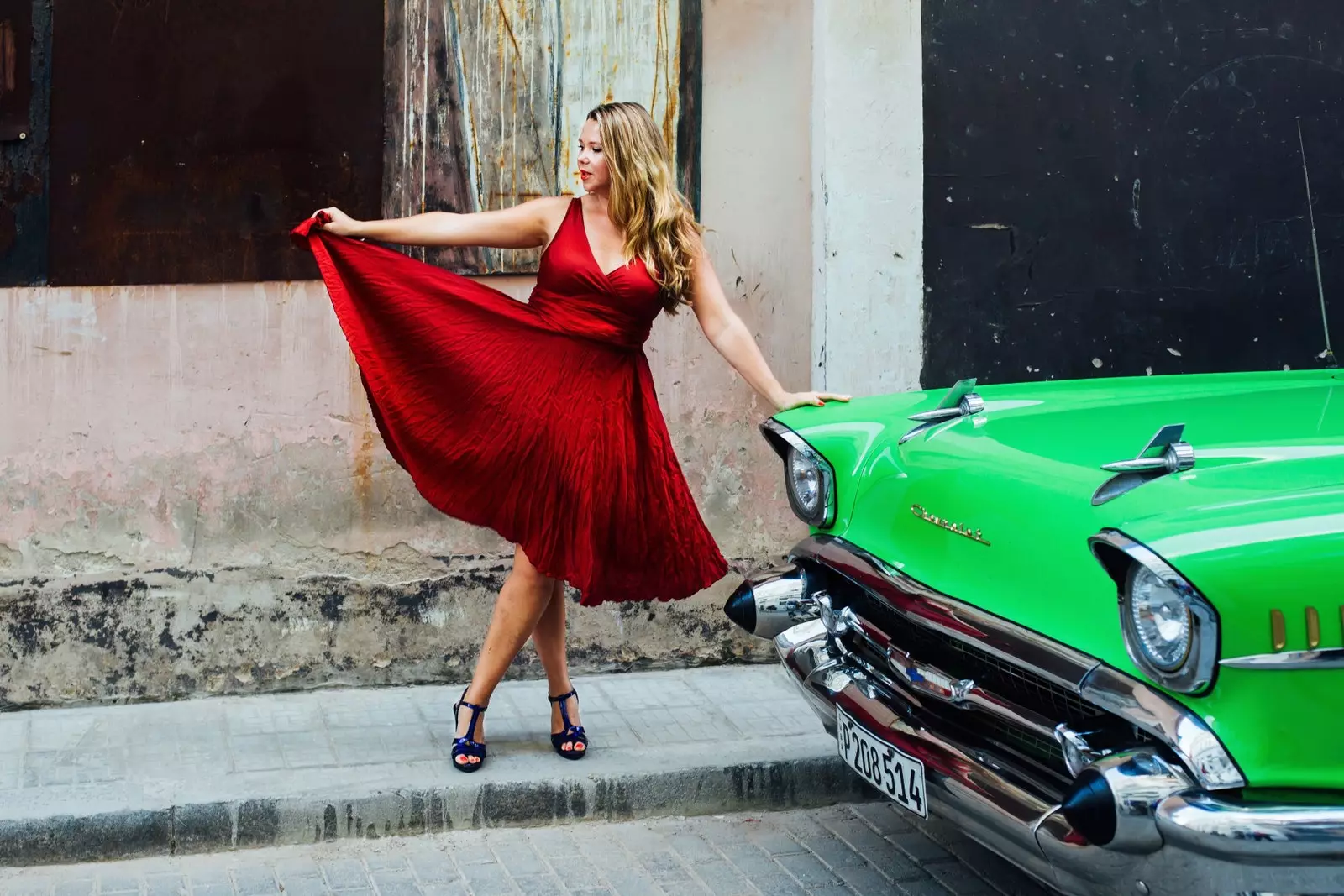
Alienor Salmon dancing through the streets of Havana, Cuba.
I met Aliénor Salmon in Bangkok in 2014 shortly before embarking on his trip around the world, describing the dances associated with the history of her country, and enjoying living the moment after taking this initiative that At the time it seemed crazy.
Before his trip, she worked as a happiness researcher for Unesco (the United Nations Educational, Scientific and Cultural Organization). She was always busy and spent most of it sitting, writing reports, in front of her computer.
On a trip almost to work, with the laptop in tow, a friend of hers asked her a question that made her completely transform her lifestyle: If you had no time or money limit, what would you do?
A novice dancer, but a long-time social researcher, Alienor decided to leave Bangkok, and her work, behind to tour Latin America. She learned 18 dances, each native to the country she visited, and she learned the local customs from the hand of her dance teachers.
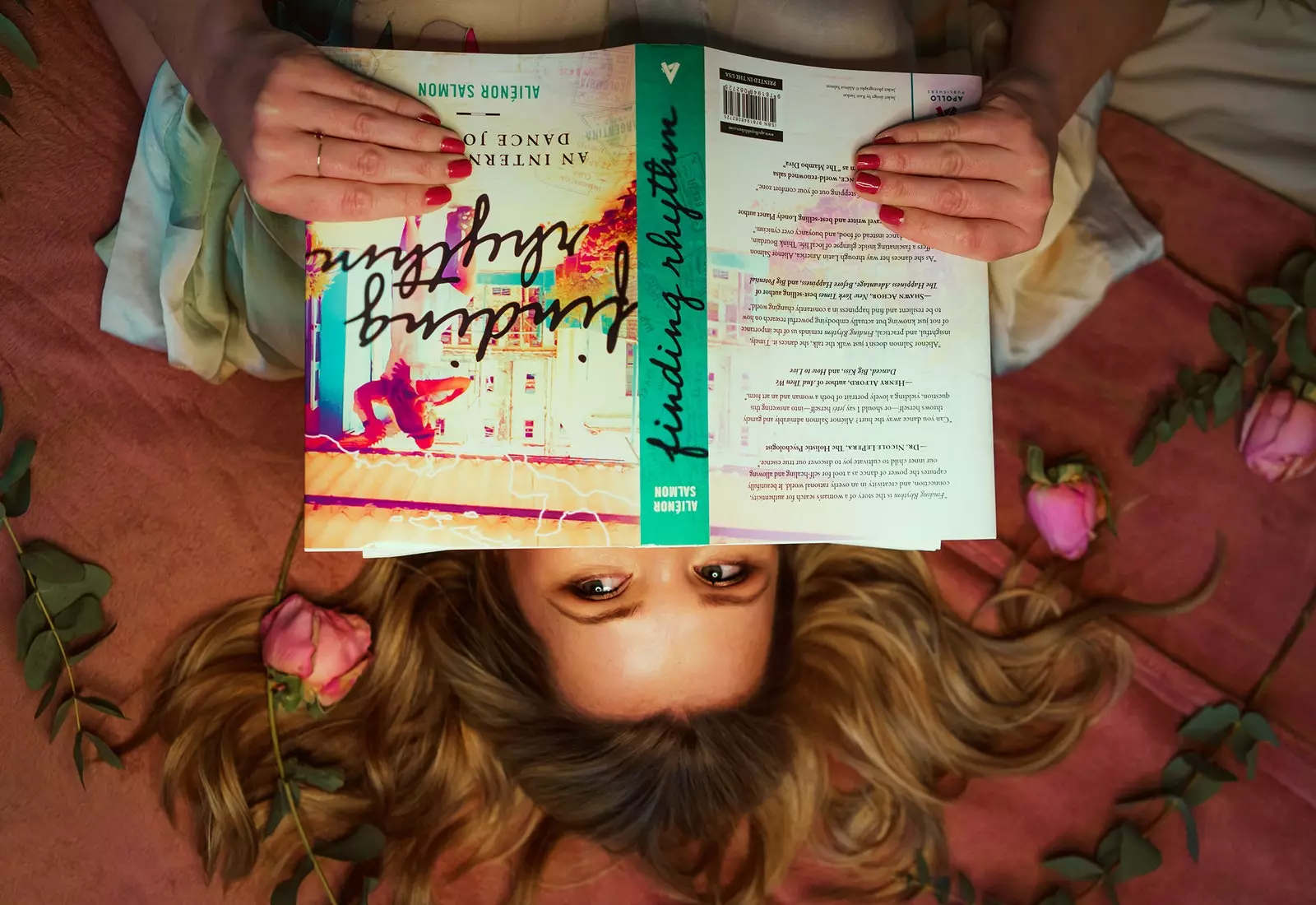
Alienor Salmon with her book 'Finding Rhythm: An International Dance Journey'.
THE BOOK
After a long journey and a lot of study about the dances and their origins, Alienor, Franco-British, 35, has released her first book: Finding Rhythm: An International Dance Journey, published by Apollo Publishers, and already on sale on many platforms such as Amazon or in bookstores where works in English are distributed.
Her book inspires us to take charge of our own lives and to travel through the different cultures of Latin American countries through their experiences, history and dance steps as diverse as salsa, reggaeton, samba or tango.
Condé Nast Traveler: Alienor, how did you take the first step of this whole experience?
Alienor Salmon: It was complicated, because at that time my career was taking off. I had more and more education policy publications in my hands, I had been invited to speak about happiness in America and I was working on a project for schools called Happy Schools, which I was very proud of.
This project was precisely what led me to investigate the philosophy of happiness and analyze myself, since I was burned out from work and very sad after having lost three important people in my life in less than six months.
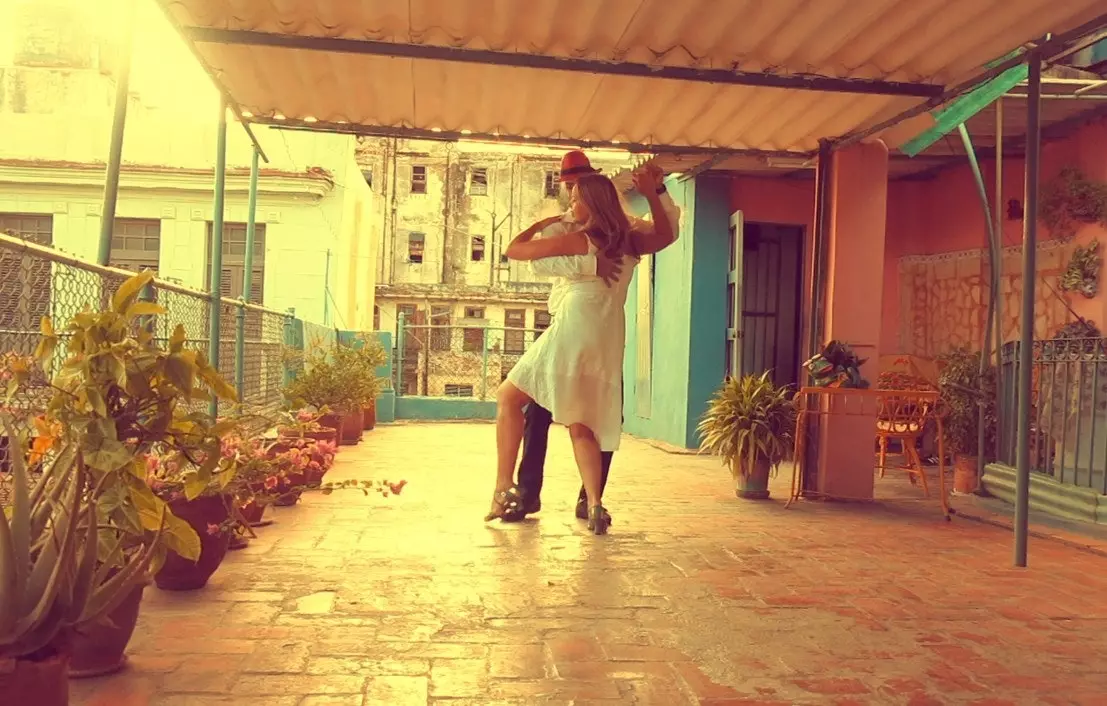
Alienor Salmon left everything and dedicated herself to dancing around the world.
Q: How did this idea culminate in a dance project?
A: I had been living in Asia for six years and I always dreamed of living in Latin America. I was looking for an experience that would allow me to free my body from the desk and live the present moment. The dance was perfect for it.
At first I thought of going to Argentina to learn tango, the most common dance trip. Then I thought that it would be interesting to learn bachata in his country of origin, in the Dominican Republic. But I was also attracted to discover the Rio de Janeiro carnival. If I went on a bachata, samba and tango trip, I also had to learn salsa. But sauce, from where? From New York, Puerto Rico, Cuba or Colombia?
I wanted to learn all the dances and little by little I developed an itinerary from New York to Buenos Aires passing through eight dance destinations. They are the Dream Dance Destinations, as I usually call them. I started to add in the route the dances that I wanted to learn, some I also discovered during the trip. That was my Dancing Journey, the name it receives my travel blog
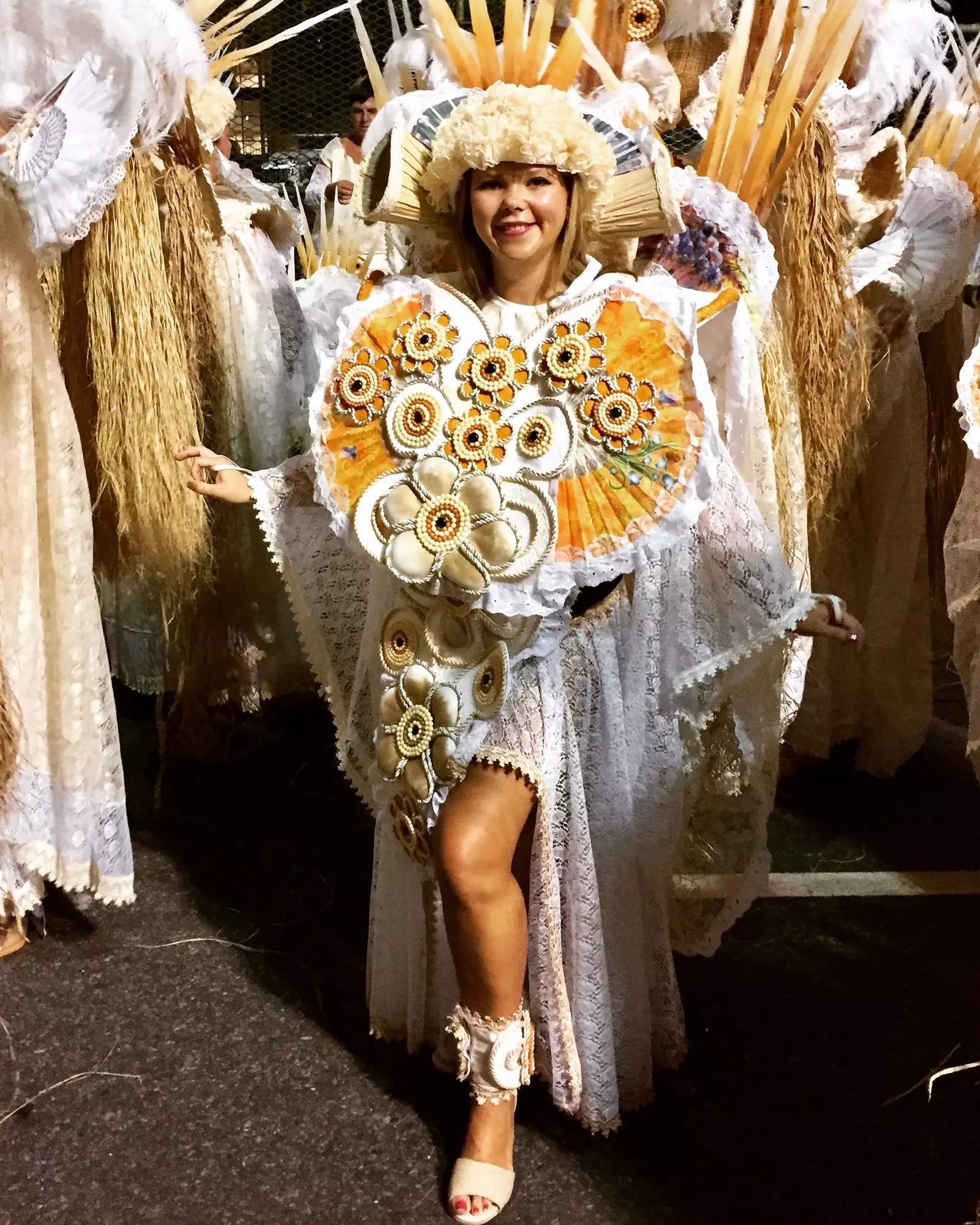
He participated in the Brazilian Carnival.
Q: What did you learn from that whole experience?
A: I learned life. Dancing taught me the importance of human connection and how nice it can be to connect with strangers in a society where We no longer look each other in the eye and we have stopped hugging, especially in societies like mine, since I grew up in England.
I also learned things about myself as a person. For example, that perfectionism is not a good thing. I had to make mistakes many times until I could learn the steps of each dance, but I realized that this is not a bad thing and that I can become good if I work. It helped me feel better about my body, to seek feminine expression and communicate non-verbally.
Q: In what way did dancing help you, too, to travel?
The dance connected me with the places I visited. Almost all the classes I took were private and I spent a lot of time with my teachers. They lived in a very different environment than mine. They talked to me about their dreams, their lives, about what made them happy. Her perspective on life helped me as a dance student and as a traveler, being able to appreciate very different people.
also made me know complicated neighborhoods of the cities to which perhaps otherwise I would not have gone. It helped me understand the customs and traditions. Discover the history of each of the music.
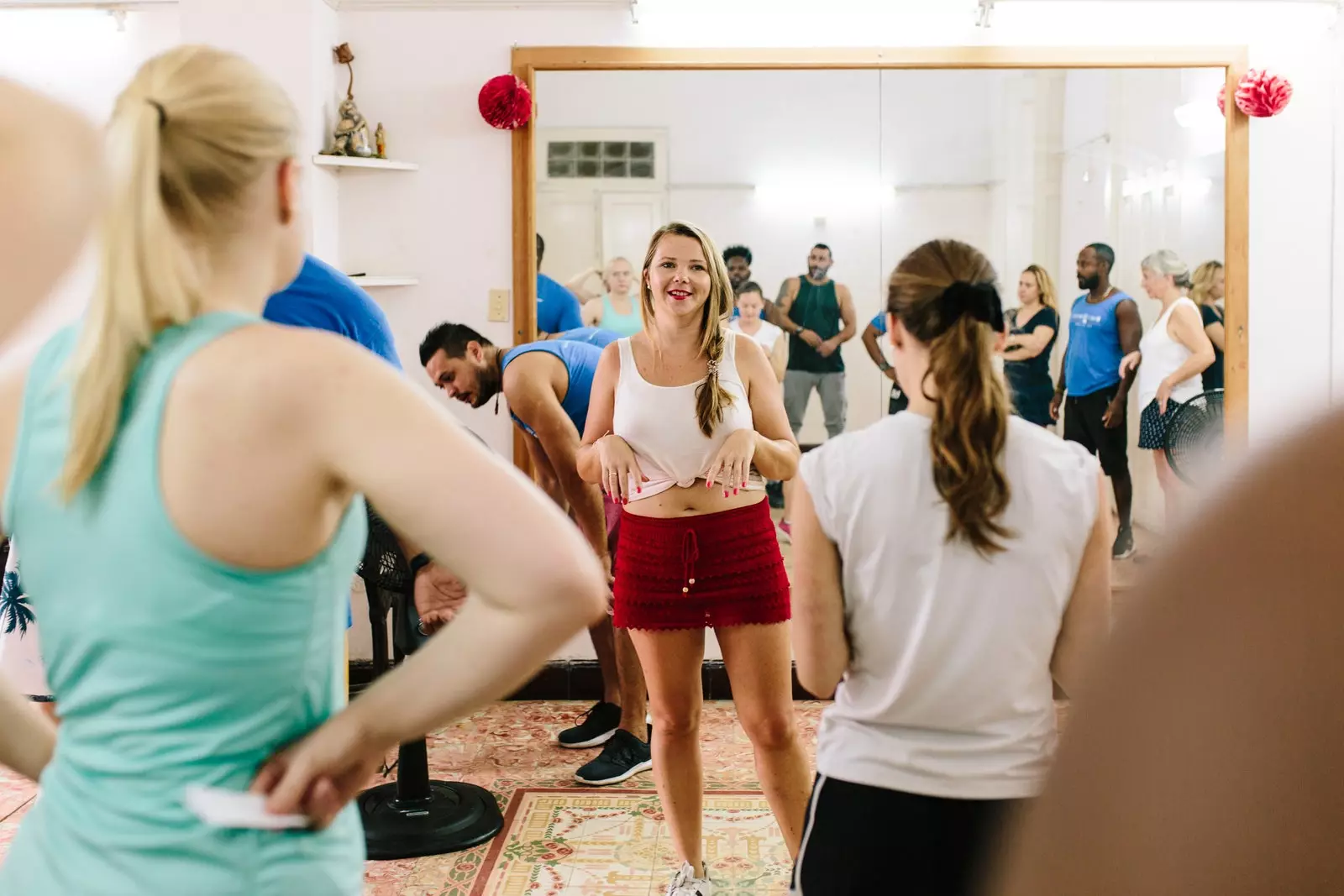
Aliénor Salmon teaches workshops that combine dance with personal development.
Q: How did the book project that you published come about?
I never had the ambition to write it. My environment pushed me to do it to offer what I have learned to other people. As a child I always liked literature, but I never thought that it could be something to do with my life. During the trip, I started taking notes on my mobile, recording videos and documenting everything I experienced as best I could, in case I ended up writing when I got back.
In September 2017 I went back to live with my mother because she had spent all my life savings. I wrote a draft and started find a literary agent whom I contacted through a client for whom I did a translation.
I worked on the draft for three or four months, combining this task with some consulting. Two months before the arrival of Covid-19, I had moved to Mexico, I needed two chapters to complete the book and my agent had received a proposal from a publisher in New York to publish it.
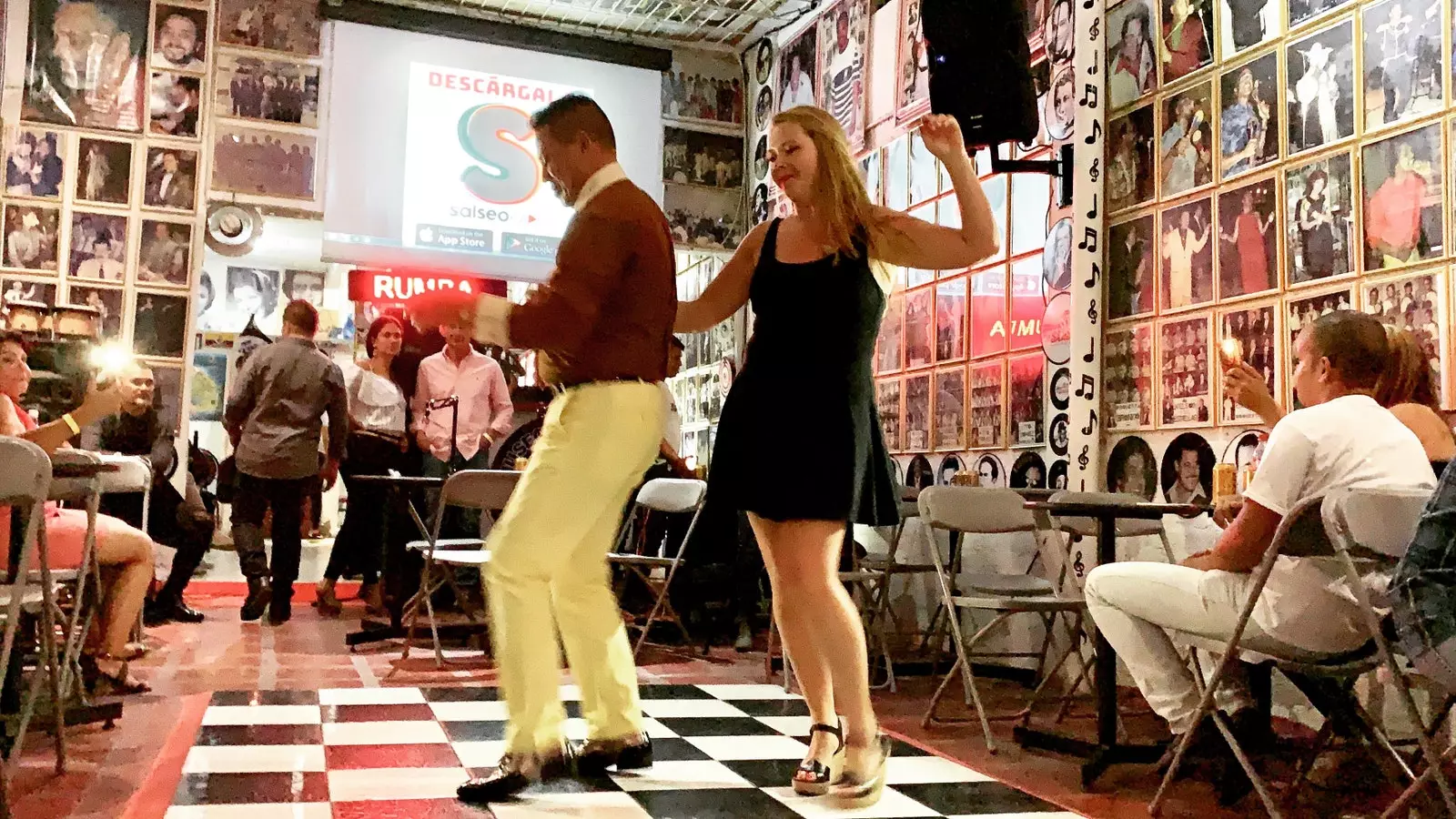
Alienor Salmon at the Salsa Museum in Cali.
Q: What continuity will Bailando Journey have from now on, given the circumstances?
Due to pressure from the English embassy, I had to return to Europe when the lockdown was announced in March last year. In June 2020 I was in England and created an online dance studio to support artists who are very affected by the pandemic because they cannot go on stage. I'm creating virtual events so we can travel with them. I call them Happy Hours. They are donation events, as all profits go to the artist.
On the other hand also I have started a series of workshops that combine dance with personal development, such as motivation, romance or leadership. I now live in Lisbon and will be working on other projects in the coming months.
Q: After everything you learned… What would you say now to the Alienor who lived attached to her computer in Bangkok?
She would tell him that there is much more to living outside of the desk. Life is learned on the street, with people. You have to live each moment as fully as possible.
